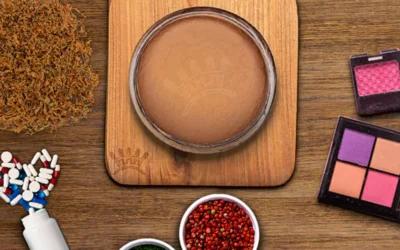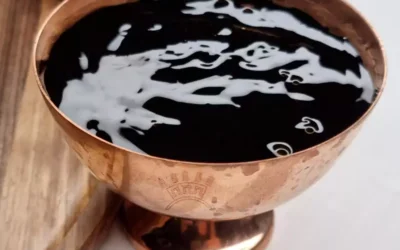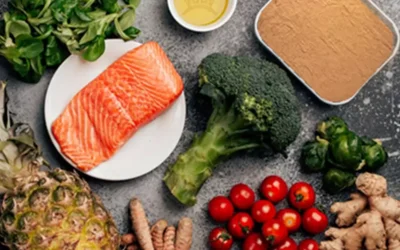Interview with the CEO of Sepidan Osareh Jonoob Co.
Mr Meysam Shokripour
The licorice plant is an ancient herb that our ancestors have long used to treat various ailments. It is known by different local names across various regions of Iran, such as “Riše-ye Mahak” (Mahak Root), and its extract is commonly referred to as “Qara Mahak”
Interview with the CEO of Sepidan Osareh Jonoob Co.
Licorice is a highly versatile plant used today in a wide range of industries, including pharmaceuticals, food and beverages, herbal syrups, confectionery and chocolates, cosmetics, personal care products, dietary supplements, tobacco, and more.
To gain a deeper understanding of this valuable plant, we interviewed Mr. Meysam Shokripour, CEO of Sepidan Osareh Jonoob Co., one of the largest producers and exporters of licorice products in Iran. Below is the detailed conversation.
Can you introduce yourself?
I am Meysam Shokripour, an archaeologist and the CEO of Sepidan Osareh Jonoob Co., specializing in the production and export of licorice products such as licorice extract and licorice powder.
How did you become interested in licorice production and export?
My father, Mr. Ahmad Shokripour, has over 30 years of experience in producing and exporting herbal products, especially licorice. He is recognized as a highly experienced professional in this field internationally. With his efforts, the establishment of multiple factories for herbal products, and his extensive knowledge about licorice, Sepidan Osareh Jonoob Co. was founded in 2003. Through his dedication and the hard work of our talented team, we have achieved year-on-year growth, and today, our company is one of the most recognized licorice manufacturers globally.
Can you explain more about licorice?
Licorice is a wild plant found abundantly in various regions of Iran, where it is commonly known as “Mahak.” Its scientific name is Glycyrrhiza glabra, and in English, it is called licorice. This plant also grows in other parts of the world, including southern Europe, Russia, China, and neighboring countries like Azerbaijan. Licorice is approximately 30 to 100 times sweeter than sugar, yet it has a slightly bitter aftertaste. It is rich in minerals such as potassium, magnesium, and amino acids.
What are the benefits and properties of licorice?
Licorice offers numerous health benefits, including:
- Supporting digestive health and alleviating stomach disorders and indigestion.
- Regulating stomach acid levels.
- Soothing respiratory issues, including sore throats and coughs.
- Acting as an anti-inflammatory, antiviral, antibacterial, and antifungal agent.
- Improving skin conditions such as eczema and more.
Which industries utilize licorice?
Licorice is used in various industries, including:
- Pharmaceuticals
- Cosmetics and personal care
- Food and beverages
- Traditional medicine
- Confectionery, particularly in gummies and candies
- Spices and seasonings
- Dietary supplements
- Pet food
- Tobacco and more.
What licorice products does your company manufacture?
Our product range at Sepidan Osareh Jonoob Co. includes:
- Licorice extract powder
- Solid licorice extract blocks
- Liquid or paste licorice extract
- Licorice root powder
- Specialized products like licorice granules, nuggets, and DGL (Deglycyrrhizinated Licorice).
We have the capability to produce customized products based on clients’ analytical requirements.
Which countries do you primarily export to?
Our products are highly regarded for their exceptional quality and are mainly exported to Europe, China, Australia, and the United Arab Emirates.
What makes European clients choose your products?
Our ability to produce a wide variety of licorice products tailored to the specific needs of each customer, combined with outstanding quality, competitive pricing, honesty, and post-sale support, has earned us the trust of international clients over the past few decades.
Could you explain the production process of licorice products?
The raw material for licorice products is licorice root, which is abundantly available in Iran. We source high-quality roots, clean, and dry them using fully automated systems. These roots then undergo production in our factory, which is equipped with advanced machinery like large-scale extractors, spray dryers, and multi-stage concentration systems. Throughout the production process, our quality control unit and laboratory monitor every stage to ensure product excellence. Our laboratory is equipped with one of the most advanced HPLC devices in the world.
After manufacturing, the final product is packaged according to European standards.
Are there any risks or restrictions associated with licorice consumption?
Excessive consumption of licorice can lead to increased blood pressure and blood sugar levels. Therefore, individuals with high blood pressure, diabetes, or kidney problems should consume licorice under medical supervision. Pregnant and breastfeeding women are also advised to consult their physician regarding licorice consumption and dosage.
Latest Licorice Articles and News
Licorice Fields of Use
Licorice Fields Of Use Licorice has a wide range of applications across various industries, including cosmetics, pharmaceuticals, confectionery, food and beverages, traditional medicine, herbal remedies, and the tobacco industry. BackgroundLicorice: A Versatile...
Licorice in Skincare
Licorice in Skincare Using licorice in skincare products is due to its beneficial properties, such as healing redness and itching, brightening the skin, and providing protection against sun rays, among others. BackgroundLicorice: A Versatile Perennial Plant...
Nutritional Value of Licorice
Nutritional Value of Licorice Glycyrrhiza glabra, commonly known as licorice, is a plant with a long history of use in both traditional medicine and culinary practices. Across traditional Iranian, Indian, Chinese, and Greek medicine, licorice has been widely...





